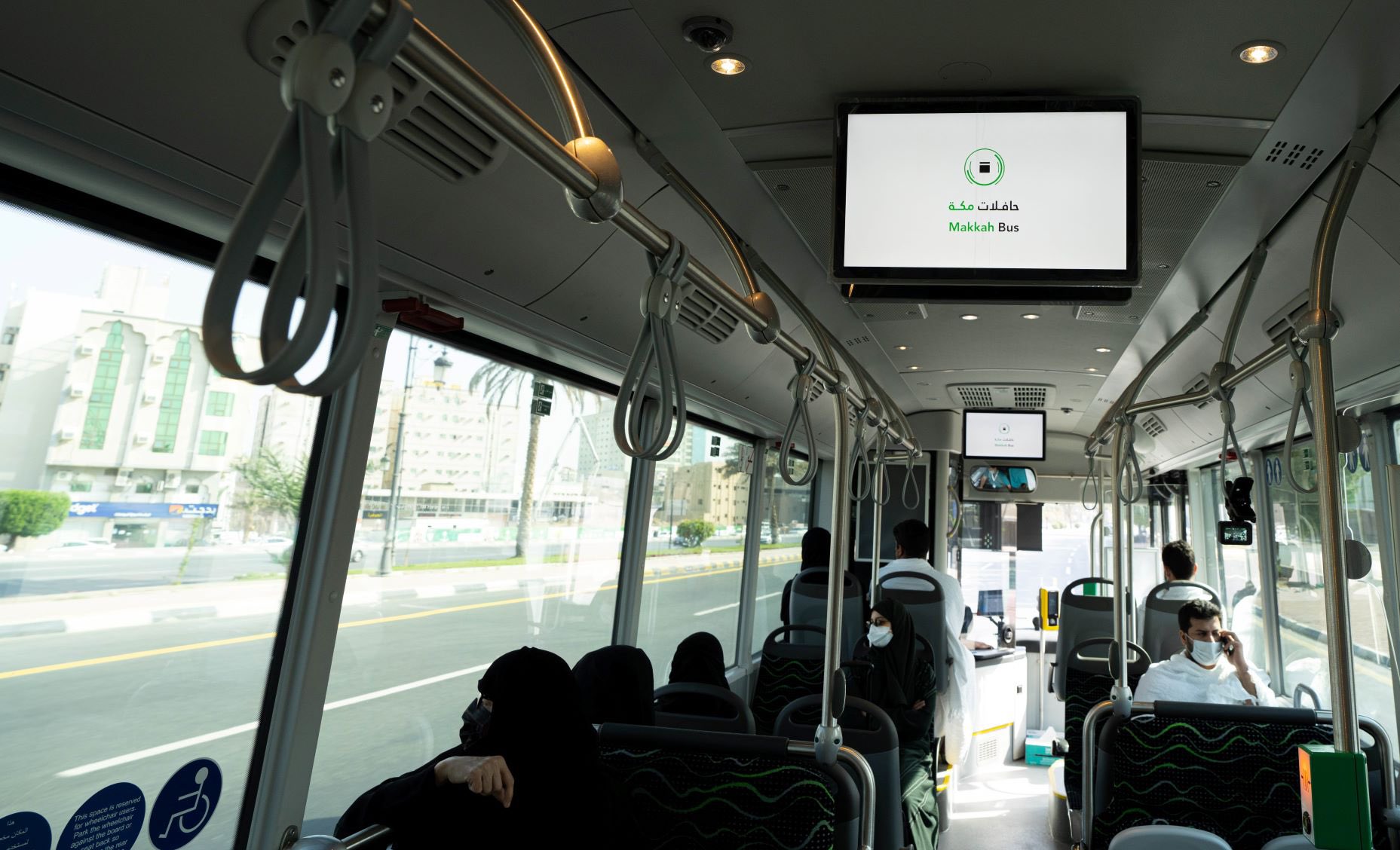MAKKAH: The trial phase for a public transport bus project in Makkah was launched on Tuesday by the Royal Commission for Makkah City and the Holy Sites, on the track linking the Haramain Express train station in the Rusaifa district and the Jabal Omar station near the courtyards of the Grand Mosque.
The project is one of the initiatives from the Doyof Al Rahman Program, the pilgrims' service program, one of the programs of Saudi Vision 2030.
The RCMC representative for the Makkah Buses project, Dr. Rayan Al-Hazmi, said that 12 other tracks would be launched to cover most Makkah neighborhoods in the coming months. These tracks will extend for a distance of 280 km throughout Makkah, with 450 bus stops, served by 400 buses, some with a capacity of 85 passengers, while other articulated buses will have a larger capacity of 125 passengers.
Al-Hazmi said that four central stations around the Grand Mosque would handle transportation to and from the site, targeting the residents of Makkah city and its various neighborhoods.
He added that this trial phase was free of charge since the RCMC wanted as many people as possible to try the service and give their feedback to ensure that the targeted groups were satisfied with the service quality.
“Buses will reach bus stops every five to seven minutes, according to different times of the day. Every bus will be monitored based on very accurate schedules from the control rooms, with the aim of respecting schedules by the second, in pursuit of achieving the highest levels of readiness and discipline,” Al-Hazmi told Arab News.
He said the trial track was dubbed Route 7A and served to transport passengers from the Haramain Express train station to the Grand Mosque, but that the other 12 tracks were distributed in a way to serve all neighborhoods, regardless of their geographical locations, including Umm Al-Qura University students and even the outskirts of Makkah.

The trial phase for a public transport bus project in Makkah was launched on Tuesday. (@makkahregion)
Al-Hazmi said that this step was aimed at reducing the use of vehicles in Makkah. “We will also raise capacity during the Hajj and Umrah season to go in line with the operational plans carried out by the Ministry of Hajj and Umrah.”
He said the project would incorporate eight languages from the Custodian of the Two Holy Mosques Institute for Hajj and Umrah Research as secondary languages after Arabic.
Al-Hazmi stressed that the RCMC was aware that Makkah was full of shops and sidewalks, and that it had taken this matter into consideration to establish this project with the least number of complaints.
“A committee made up of representatives from the Transport General Authority, the Holy Makkah Municipality, consulting offices, and companies executing the project will study every complaint submitted before the RCMC or the relevant authorities separately and take action to ensure the issue is resolved immediately.”
He said there were no specific distances between stops. They differed according to each route and the need for these tracks, which would constantly be improved after looking into passenger feedback to ensure the project’s positive development.
Makkah Buses aims to improve services for pilgrims to help them perform their religious rituals with ease, which can be done through facilitating the hosting of more pilgrims, providing quality services to pilgrims, and enriching their religious and cultural experience while providing all possibilities to ensure sector sustainability.
The project has a contract for the supply, operation, and maintenance of 400 buses for a period of eight years and six months, and the construction of a bus station, which includes a control building, a driver management building, a fuel station, maintenance workshops, parking lots, and housing facilities for drivers.
The buses feature fire extinguishing systems, carbon emission reduction systems, security systems through cameras inside and outside the bus, collision avoidance systems, electronic screens showing the intended destination, as well as hydraulic systems to help people with special needs, dedicated sections for strollers and wheelchairs, WiFi services, and audio-visual systems for trip information inside the bus.
Buses will be effectively scheduled to accommodate transportation needs on normal days, peak times and seasons, with up to 20 operating hours per day.




























